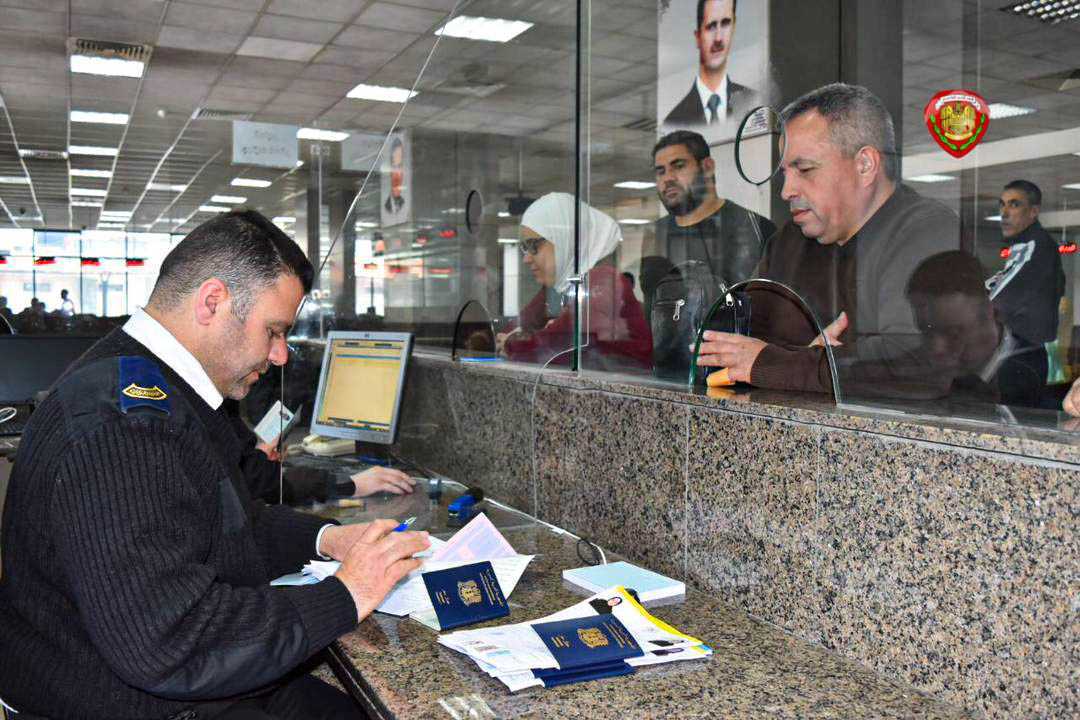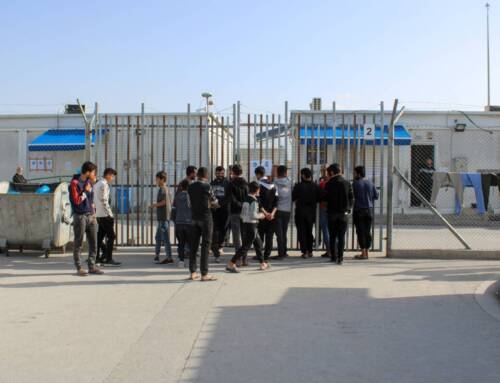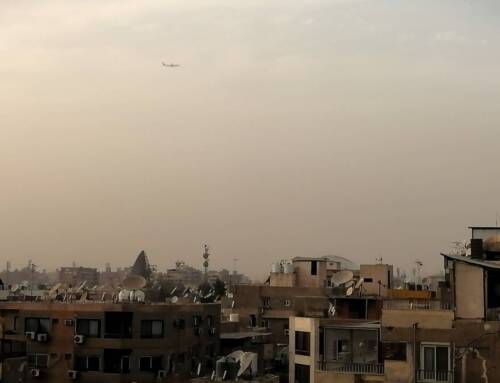Delays and exploitation: Passport crisis prevents Syrians from leaving the country
For more than two years, Syria’s passport system has been in a crisis that is disrupting travel plans and opening the door for corruption and exploitation by passport brokers.
22 August 2023
DAMASCUS — On August 13, the Syrian government’s Citizen Service Center announced that passports scheduled to be issued two days later would be delayed until September 17. It was the second time this batch of passports had been delayed: Initially set to receive the travel documents on July 5, applicants had already waited for more than a month.
The delay was the latest sign of a crisis that has beset Syria’s passport application and issuing system for more than two years, disrupting travel plans and opening the door for brokers to exploit those wishing to obtain passports to leave a country ravaged by war for more than 12 years.
In 2021, Syria’s Minister of Interior Mohammad Khaled al-Rahmoun directly addressed the passport crisis, attributing it to “purely technical reasons” and saying “the problem has been addressed.” Expedited passports would be provided immediately, and outstanding applications for regular passports were to be delivered by July 2022. After August 20, 2022, there would be no further delays, he vowed.
But the crisis has continued. In June 2022, Samir (a pseudonym), 38, was supposed to attend a journalism fellowship program abroad. He was the sole Syrian journalist accepted to the program from inside the country’s borders. But because his passport was expiring in four months—not enough time to obtain a visa—he had to apply for a new travel document.
Four months before the fellowship began, Samir applied for a passport, booking a turn on the online government platform “through a broker’s office,” he told Syria Direct. He was told he would receive his passport on May 8, he said, requesting anonymity for security reasons.
When May 8 rolled around, Samir went to the Immigration and Passport Department in Damascus to pick up his passport, but was told by an employee to come back in two days. “The next day, I was surprised that the dates to receive passports were postponed by two months,” he said.
“Had I known what would happen, I would have applied for an expedited passport despite the high fees,” he added.
An expedited passport costs Syrians inside the country 1.5 million Syrian pounds ($70 at the black market exchange rate of SYP 14,350 to the dollar). The fees are equal to five months of a public sector employee’s salary—after the latest salary increase under Legislative Decree 11 and 12 issued on August 15. The decrees doubled salaries and wages for civilian and military employees, as well as retirees. Before the increase, the average government salary was around SYP 100,000.
‘Brokers’ benefit
Syrians seeking passports have long faced hours of waiting in long lines in front of Immigration and Passport Department branches for the chance to apply. In November 2021, the Ministry of Interior offered a solution through the launch of an online “electronic line” platform where applicants could remotely register for a turn to apply. It also launched a new passport service through the state’s electronic Citizen Service Center in July of the same year.
But rather than providing solutions, the two measures exacerbated the passport crisis, a number of Damascus residents told Syria Direct.
In particular, the role of brokers—who charge large sums of money in collusion with Immigration Department employees to secure both spots in line via the online platform and passports themselves—has grown. Related to this activity, in February 2022 the regime’s Minister of Interior announced the arrests of employees, officers and brokers at the Damascus immigration branch for bribery and extortion.
Samer Khalil, 40, recently managed to obtain an expedited passport by going through a broker in Damascus. He paid $2,500 for the service, he told Syria Direct. Although he was wanted for military reserves duty, “the broker was able to get the passport the day after my agreement with him, without me going to the Immigration and Passports branch in person.”
Brokers trawl for their customers on Facebook groups, offering their services to those hoping to obtain passports, whether they are inside Syria, outside the country or wanted by the regime. One broker, going by the nickname Abu Abdo, told Syria Direct that brokers charge up to $3,100 for a passport “if the person is wanted.”
Hindering freedom of movement
Samir, the journalist who lost a fellowship when his passport application was delayed, described the postponement of passports by the Ministry of Interior without explanation as “hindering citizens’ freedom, manipulating their fate without the slightest sense of responsibility.” He said the ministry cost him an important opportunity for his career “because the passport was delayed and not delivered on time.”
Samir’s case reflects the struggle of many Syrians, inside and outside the country, who need travel documents but cannot access them “due to the government’s failure to resolve the passport crisis at its roots,” a Syrian lawyer in Damascus told Syria Direct on condition of anonymity for security reasons. “If it wanted to solve the problem, it would do that by putting an extension sticker on passports,” a mechanism that was in effect until 2017, he said.
The ongoing passport crisis hinders Syrians’ freedom of movement in violation of Syria’s 2012 Constitution, the lawyer contended. Article 38 of the constitution states that: “Every citizen shall have the right to move in or leave the territory of the state, unless prevented by a decision from the competent court or the public prosecution office or in accordance with the laws of public health and safety.”
Syria’s passport is the third-worst in the world, according to the Henley Passport Index. Its bearers are only allowed to enter 30 countries without a visa. Still, the document is a dream that many Syrians have not been able to realize—shattering their hopes of participating in activities abroad, as in Samir’s case, or preventing them from leaving the country as part of its ongoing wave of emigration.
This report was originally published in Arabic and translated into English by Mateo Nelson.







